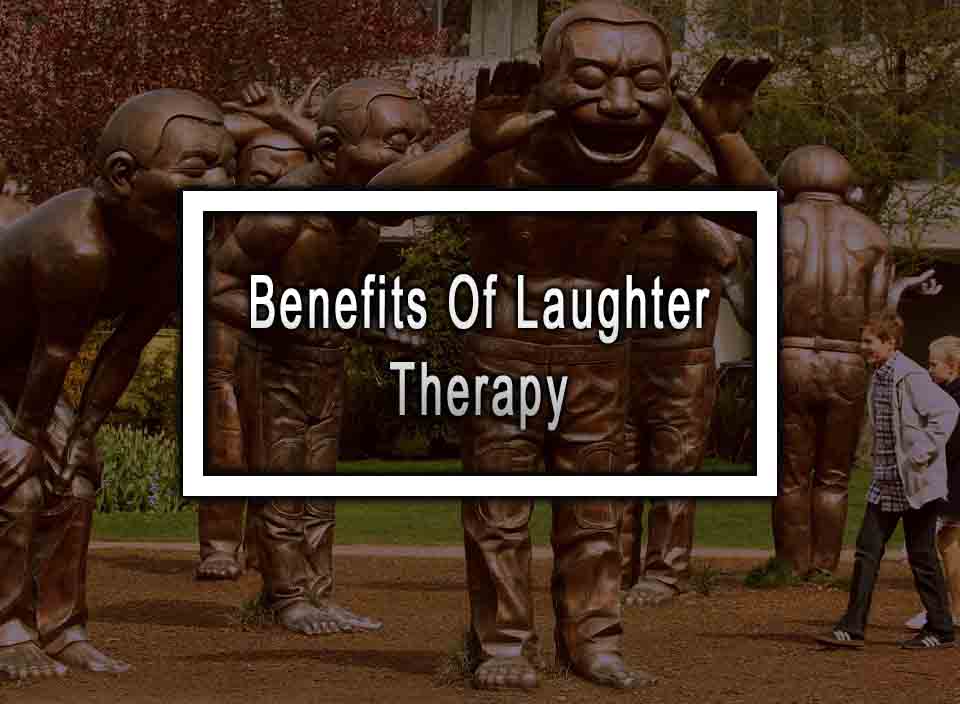Table of Contents
ToggleHere Are Some Benefits Of Laughter Therapy
Laughter is a universal language that is understood by everyone regardless of their language or culture. Laughter is an expression of joy, happiness, and amusement. It is also a great way to boost your mood and relieve stress. In recent years, there has been a growing popularity of laughter therapy, a practice that has become popular in many countries. Laughter therapy is a type of therapy that uses laughter as a way to relieve physical and emotional stress. It is a simple but effective therapy that can be practiced in many different areas of life. In this article, we will explore the benefits of laughter therapy, how it works, and how you can practice it.
What is Laughter Therapy?
Laughter therapy is a type of therapy that uses laughter as a way to relieve physical and emotional stress. It is also known as laughter yoga. The practice involves a series of laughter exercises where people come together in a group to laugh together. The exercises involve deep breathing, stretching, and laughing. Participants are encouraged to laugh out loud and to let go of their inhibitions. Laughter therapy is often used in conjunction with other therapies such as counseling or medication to help people suffering from depression, anxiety, or other mental health issues.
How Does Laughter Therapy Work?
Laughter therapy works in several ways. Firstly, when we laugh, our body produces endorphins, which are natural painkillers. Endorphins help to relieve pain and stress, improving our overall sense of well-being. Secondly, laughter also improves our immune system. When we laugh, our body produces more immune cells which help to fight off illness and disease. Finally, laughter also helps to reduce our stress levels. When we laugh, we release tension, which helps to reduce stress and anxiety.
How to Practice Laughter Therapy
Laughter therapy can be practiced in many different ways. Here are some tips for practicing laughter therapy:
1) Find a Laughter Yoga Group: Laughter yoga groups are a great way to practice laughter therapy. They provide a supportive environment where you can laugh and connect with others.
2) Watch a Funny Movie: Watching a funny movie can be a great way to practice laughter therapy. Laughter is infectious, so when we watch something funny, we are more likely to laugh.
3) Practice Laughter Exercises: There are many laughter exercises that you can practice at home. One exercise involves lying on your back and laughing out loud for several minutes.
4) Spend Time with Friends: Spending time with friends is a great way to practice laughter therapy. When we are around others, we are more likely to laugh and have a good time.
5) Find Humor in Everyday Life: Finding humor in everyday life is a great way to practice laughter therapy. When we look for the funny side in everyday situations, we are more likely to laugh and feel good.
The Benefits of Laughter Therapy
Laughter therapy has numerous benefits. It is an effective way to improve our overall sense of well-being and happiness. Here are some of the benefits of laughter therapy:
1) Reduces Stress and Anxiety: Laughter therapy is a great way to reduce stress and anxiety. When we laugh, we release tension which helps to reduce stress and anxiety.
2) Improves Mood: Laughter therapy is a great way to improve our mood. When we laugh, we release endorphins which help to improve our overall sense of well-being.
3) Boosts Immune System: Laughter therapy is an effective way to boost our immune system. When we laugh, our body produces more immune cells which help to fight off illness and disease.
4) Increases Social Connection: Laughter therapy is a great way to increase our social connection. When we laugh with others, we feel more connected and engaged with those around us.
5) Relieves Pain: Laughter therapy can be an effective way to relieve pain. When we laugh, our body produces endorphins which act as natural painkillers.
Conclusion
What benefits of laughter therapy? Laughter therapy is a simple but effective way to improve our overall sense of well-being. It is an easy therapy that can be practiced in many different ways. Whether you choose to join a laughter yoga group, watch a funny movie, or practice laughter exercises at home, laughter therapy can have a positive impact on your mental and physical health. So, next time you are feeling stressed or unhappy, try practicing laughter therapy and see how it can improve your mood and overall health.
Laughter Therapy FAQ
Here are the most common questions about the benefits of laughter therapy.
How is laughter therapy done?
Laughter therapy can be done in a group setting or individually. It involves engaging in activities that promote laughter, such as telling jokes, watching funny movies or TV shows, playing games, or participating in laughter yoga.
Is laughter therapy safe?
Laughter therapy is generally safe and has no known serious side effects. However, people with certain medical conditions, such as heart disease or lung disease, should consult with a healthcare provider before engaging in intense laughter therapy exercises.
Who can benefit from laughter therapy?
Anyone can benefit from laughter therapy, but it may be especially helpful for people who are experiencing stress, depression, anxiety, chronic pain, or illness. It can also be useful for caregivers or healthcare providers who may experience burnout or compassion fatigue.
How long does a laughter therapy session last?
The length of a laughter therapy session can vary depending on the setting and the activities involved. Group sessions may last anywhere from 30 minutes to an hour, while individual sessions may be shorter or longer depending on the individual’s needs.
Is laughter therapy a substitute for traditional therapy?
Laughter therapy is not a substitute for traditional therapy or medical treatment. However, it can be used as a complementary therapy to support overall wellness and improve mood and quality of life. It is important for individuals to consult with a healthcare provider or mental health professional to determine if laughter therapy is appropriate for their needs.
More like this: What Is Reiki Massage











